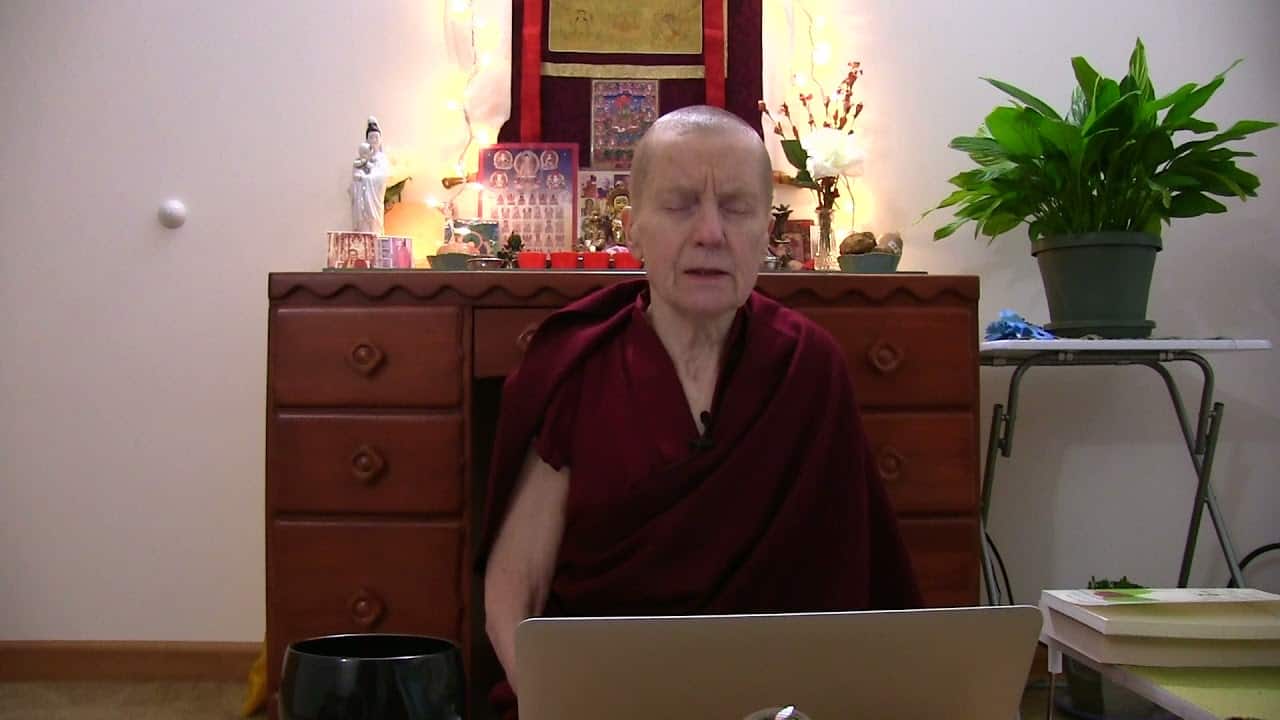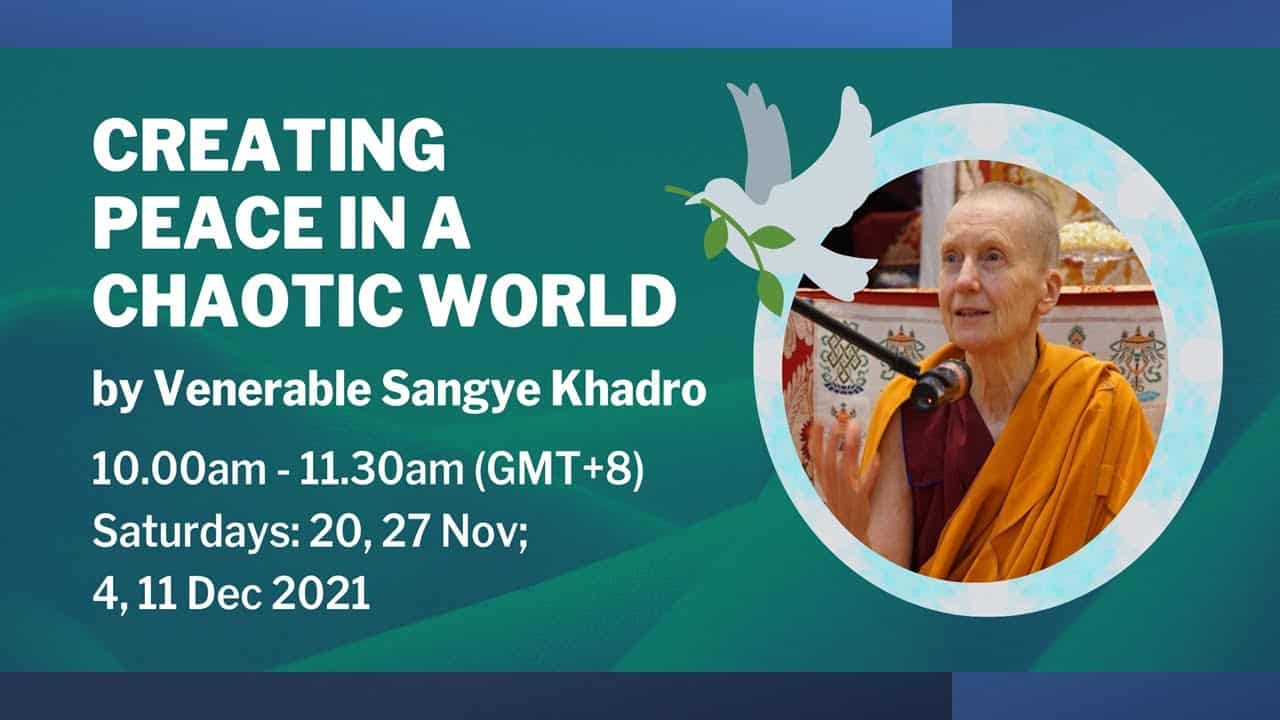The root of samsara
44 Samsara, Nirvana, and Buddha Nature
Part of an ongoing series of teachings (retreat and Friday) based on the book Samsara, Nirvana, and Buddha Nature, the third volume in The Library of Wisdom and Compassion series by His Holiness the Dalai Lama and Venerable Thubten Chodron.
- Explanation of bodhisattvas taking rebirth due to the first link
- Mental body and unpolluted karma
- Root of samsara according to different tenet systems
- Grasping at self-sufficient substantially existent person
- Refuting phenomena existing by their own characteristics and names
- True existence and inherent existence at conventional level and ultimate level
- Using examples to examine how things are merely designated or imputed
- Grasping at the aggregates and grasping at an I as inherently existent
- Causal motivation and immediate motivation
- Affliction or virtuous mental state making an action virtuous or nonvirtuous
Samsara, Nirvana, and Buddha Nature 44: The Root of Samsara (download)
Contemplation points
- What is the root of samsara for the different tenet systems described in the text? Describe the difference between them in your own words.
- Consider the idea that everything we perceive (our consciousness and the object) come from the same substantial cause (a latency on the mind). How does that start to shake up the solidity with which you view the world?
- Spend some time working through examples of differentiating between what exists conventionally and what its ultimate nature is: can you find what makes it that thing from its own side? Can you see how our mind makes something what it is?
- Consider that a lot of what we argue about in society is what term or label we apply to something; and that multiple labels can exist on the same basis.
- Describe the two motivations that lead to the creation of karma. In what order do they arise? Which one can be virtuous or non-virtuous? Track back at least 5 actions (from your own experience) of how ignorance led to non-virtuous actions.
- What comes after ignorance and why?
- The most important factor that determines whether our actions are virtuous or not is our motivation. Why is that so?
- Observe your thoughts during the day and identify the causal and immediate motivations for your actions. Try to identify the ignorance of the ultimate nature. Then observe if misconceptions and instances of distorted attention arise. Periodically during the day, stop and examine your mental state: Is it virtuous, non-virtuous, or neutral? Is it creating the cause for happiness, suffering, or neither?
Venerable Thubten Chodron
Venerable Chodron emphasizes the practical application of Buddha’s teachings in our daily lives and is especially skilled at explaining them in ways easily understood and practiced by Westerners. She is well known for her warm, humorous, and lucid teachings. She was ordained as a Buddhist nun in 1977 by Kyabje Ling Rinpoche in Dharamsala, India, and in 1986 she received bhikshuni (full) ordination in Taiwan. Read her full bio.


